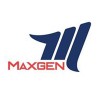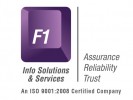
i
Zazz IT
Solutions
Filter interviews by
Zazz IT Solutions Interview Questions and Answers
19 Interview questions
I have over 5 years of experience in UI design, focusing on user-centered design principles and creating intuitive interfaces.
Led the redesign of a healthcare app, improving user engagement by 30%.
Collaborated with developers to implement responsive design for a retail website.
Conducted user research and usability testing for a financial services platform, resulting in a 25% decrease in user errors.
Utilized tools ...
My process involves optimizing images, minifying code, leveraging browser caching, and reducing server response time.
Optimize images by compressing and resizing them
Minify CSS, JavaScript, and HTML files to reduce file sizes
Leverage browser caching to store static resources locally
Reduce server response time by optimizing server configurations
Proficient in Adobe Creative Suite, Sketch, Figma, and InVision.
Adobe Creative Suite
Sketch
Figma
InVision
I address browser compatibility issues by testing on multiple browsers, using vendor prefixes, and utilizing polyfills.
Test website on different browsers (Chrome, Firefox, Safari, Edge, etc.)
Use vendor prefixes for CSS properties to ensure compatibility
Implement polyfills for missing features in older browsers
Stay updated on browser compatibility issues and best practices
Utilize tools like BrowserStack or CrossBro...
I prioritize mobile design by starting with the smallest screen size and then scaling up for larger devices.
Start by designing for the smallest screen size first
Use media queries to adjust layout and content for larger screens
Prioritize content and functionality for mobile users
I approach designing for a specific target audience by conducting research, creating user personas, and tailoring the design to meet their needs and preferences.
Conduct thorough research to understand the target audience's demographics, behaviors, and preferences
Create user personas to represent different segments of the target audience
Tailor the design elements such as color scheme, typography, and imagery to app...
I prefer using Adobe Creative Suite for design tools because of its versatility and industry-standard status.
Adobe Photoshop for image editing and manipulation
Adobe Illustrator for vector graphics and illustrations
Adobe XD for prototyping and wireframing
Adobe InDesign for layout design and publishing
Adobe Creative Cloud for seamless integration and updates
Optimizing web designs for performance and load speed involves minimizing file sizes, optimizing images, using CSS and JavaScript efficiently, and utilizing caching techniques.
Minimize file sizes by compressing images and code
Optimize images by using the correct file format and size
Use CSS and JavaScript efficiently by minimizing code and utilizing frameworks
Utilize caching techniques such as browser caching and s...
I am most proficient in Java, Python, and JavaScript.
Java
Python
JavaScript
I have experience in both front-end and back-end development, including creating user interfaces and working with databases.
Experience with front-end technologies such as HTML, CSS, and JavaScript
Proficiency in back-end languages like Java, Python, or Node.js
Knowledge of databases like MySQL, MongoDB, or PostgreSQL
Ability to integrate front-end and back-end systems to create functional applications
Zazz IT Solutions Interview Experiences
26 interviews found
I applied via LinkedIn and was interviewed in Nov 2024. There were 2 interview rounds.
(3 Questions)
- Q1. How would you utilize AWS or Azure services to create scalable web applications
- Ans.
Utilize AWS or Azure services for scalable web applications
Use AWS Elastic Beanstalk or Azure App Service for easy deployment and scaling
Leverage AWS Lambda or Azure Functions for serverless computing
Utilize AWS Auto Scaling or Azure Autoscale to automatically adjust resources based on traffic
Store data in AWS RDS or Azure SQL Database for scalable database solutions
Use AWS CloudFront or Azure CDN for content delivery ...
- Q2. How would you tackle memory leaks if the system your working on was experiencing this issue?
- Ans.
I would use memory profiling tools to identify the source of the leaks and then fix them by properly managing memory allocation and deallocation.
Use memory profiling tools like Valgrind or Instruments to identify the source of the leaks
Review the code to ensure proper memory allocation and deallocation practices are being followed
Implement smart pointers or garbage collection to automatically manage memory
Use static co...
- Q3. Have you worked on legacy systems?
- Ans.
Yes, I have experience working on legacy systems.
I have successfully maintained and upgraded legacy systems to meet current business needs.
I have refactored legacy code to improve performance and scalability.
I have integrated new technologies with legacy systems to enhance functionality.
I have experience troubleshooting and debugging issues in legacy systems.
(1 Question)
- Q1. Are you capable to work with cross functional teams and handle disputes effectively
- Ans.
Yes, I have experience working with cross functional teams and resolving disputes effectively.
I have successfully collaborated with team members from different departments to achieve project goals.
I am skilled at mediating conflicts and finding mutually beneficial solutions.
I prioritize open communication and actively listen to all team members' perspectives.
I have experience using conflict resolution techniques such a...
Interview Preparation Tips
I applied via Recruitment Consulltant and was interviewed in Nov 2024. There were 2 interview rounds.
(3 Questions)
- Q1. Have you ever worked on creating policies for a company?
- Ans.
Yes, I have experience creating policies for a company.
I have worked on developing employee handbooks outlining company policies and procedures.
I have collaborated with management to create new policies in response to changes in laws or regulations.
I have conducted research to ensure policies are compliant with industry standards and best practices.
- Q2. How would you handle conflict between higher management and employees?
- Ans.
I would facilitate open communication, mediate discussions, and work towards finding a mutually beneficial solution.
Encourage open communication between both parties to understand each other's perspectives
Mediate discussions to ensure both sides feel heard and respected
Work towards finding a mutually beneficial solution that addresses the concerns of both higher management and employees
- Q3. Are you willing to come to office everyday?
- Ans.
Yes, I am willing to come to the office everyday as required for the HR Associate role.
I understand the importance of being present in the office for collaboration and communication with team members.
I am committed to fulfilling my responsibilities and contributing to the success of the HR department.
I am open to discussing any potential flexibility or remote work options if needed.
I have reliable transportation and ca...
(2 Questions)
- Q1. If you were asked to handle some bereavement case, how would you tackle it?
- Ans.
I would approach the bereavement case with empathy, sensitivity, and professionalism.
Offer condolences and express sympathy to the individual or family members
Provide resources for grief counseling or support groups
Be understanding of any time off needed for mourning
Maintain confidentiality and respect the individual's privacy
Follow company policies and procedures for bereavement leave
- Q2. How do you manage to keep a good communication between standing up for employees vs standing up for the management?
- Ans.
Maintain open communication, understand both perspectives, find common ground.
Establish trust with both employees and management
Listen actively to concerns from both sides
Seek to understand the reasoning behind each perspective
Find common ground and solutions that benefit both parties
Communicate openly and transparently with all parties involved
Interview Preparation Tips
I applied via Naukri.com and was interviewed in Nov 2024. There was 1 interview round.
(3 Questions)
- Q1. How do you stay updated with current design trends?
- Ans.
I stay updated with current design trends by regularly reading design blogs, attending conferences, and following industry leaders on social media.
Regularly reading design blogs
Attending design conferences
Following industry leaders on social media
- Q2. What design tools and software are you proficient in?
- Ans.
Proficient in Adobe Creative Suite, Sketch, Figma, and InVision.
Adobe Creative Suite
Sketch
Figma
InVision
- Q3. What's your process for optimizing a website for performance and speed ?
- Ans.
My process involves optimizing images, minifying code, leveraging browser caching, and reducing server response time.
Optimize images by compressing and resizing them
Minify CSS, JavaScript, and HTML files to reduce file sizes
Leverage browser caching to store static resources locally
Reduce server response time by optimizing server configurations
I applied via Naukri.com and was interviewed in Nov 2024. There was 1 interview round.
(3 Questions)
- Q1. How do you approach designing for a specific target audience?
- Ans.
I approach designing for a specific target audience by conducting research, creating user personas, and tailoring the design to meet their needs and preferences.
Conduct thorough research to understand the target audience's demographics, behaviors, and preferences
Create user personas to represent different segments of the target audience
Tailor the design elements such as color scheme, typography, and imagery to appeal t...
- Q2. How do you handle browser compatibility issues?
- Ans.
I address browser compatibility issues by testing on multiple browsers, using vendor prefixes, and utilizing polyfills.
Test website on different browsers (Chrome, Firefox, Safari, Edge, etc.)
Use vendor prefixes for CSS properties to ensure compatibility
Implement polyfills for missing features in older browsers
Stay updated on browser compatibility issues and best practices
Utilize tools like BrowserStack or CrossBrowserT...
- Q3. How do you approach responsive and mobile-first design?
- Ans.
I prioritize mobile design by starting with the smallest screen size and then scaling up for larger devices.
Start by designing for the smallest screen size first
Use media queries to adjust layout and content for larger screens
Prioritize content and functionality for mobile users
I appeared for an interview in Nov 2024.
The aptitude test evaluates problem-solving, coding skills, and logical reasoning, offering a fair challenge to showcase technical expertise.
(2 Questions)
- Q1. How do you handle conflicts in a team project?
- Ans.
I address conflicts in team projects by promoting open communication, active listening, and seeking compromise.
Encourage open communication among team members to address conflicts early on
Practice active listening to understand all perspectives and concerns
Seek compromise and find common ground to resolve conflicts effectively
- Q2. What is the difference between an interface and an abstract class?
Interview Preparation Tips
I applied via Walk-in and was interviewed in Nov 2024. There was 1 interview round.
(2 Questions)
- Q1. How to ensure your team understands project requirements and deadlines?
- Ans.
To ensure team understands project requirements and deadlines, communicate clearly, provide detailed documentation, set milestones, and regularly check progress.
Communicate clearly with team members about project requirements and deadlines.
Provide detailed documentation outlining project scope, deliverables, and timelines.
Set clear milestones and deadlines for different phases of the project.
Regularly check in with tea...
- Q2. How do you handle scope creep in app development projects?
- Ans.
Scope creep in app development projects is managed by setting clear project scope, regularly communicating with stakeholders, prioritizing tasks, and documenting changes.
Set clear project scope at the beginning to avoid misunderstandings.
Regularly communicate with stakeholders to ensure everyone is on the same page.
Prioritize tasks based on importance and impact on project timeline.
Document all changes to scope and get...
Interview Preparation Tips
(2 Questions)
- Q1. How to do you typically approach project initiation?
- Ans.
I typically approach project initiation by conducting thorough research, defining clear objectives, and creating a detailed project plan.
Conduct research to understand the market, competition, and customer needs
Define clear project objectives and success criteria
Create a detailed project plan outlining tasks, timelines, and resources needed
Identify key stakeholders and involve them in the project initiation process
Set ...
- Q2. How do you manage scope creep during a project?
- Ans.
Scope creep can be managed by setting clear project goals, regularly communicating with stakeholders, and prioritizing tasks.
Set clear project goals and objectives from the start to avoid unnecessary additions.
Regularly communicate with stakeholders to ensure everyone is on the same page and to address any changes or additions.
Prioritize tasks based on their impact on the project timeline and budget to prevent scope cr...
I applied via LinkedIn and was interviewed in Jun 2024. There were 2 interview rounds.
They asked me to design google ads poster designs for the content they gave me.
(2 Questions)
- Q1. About experience and recent work
- Q2. About the tools I am familiar with and about how quickly & effectively I deliver design in the given time
Interview Preparation Tips
- Design tools & Software
- Product design process
- industry knowledge
- principles of design
I applied via LinkedIn and was interviewed in Jun 2024. There was 1 interview round.
(3 Questions)
- Q1. How do you handle debugging in your code?
- Ans.
I use print statements, logging, and debugging tools to identify and fix issues in my code.
I start by reviewing the code and understanding the logic behind it.
I use print statements to check the values of variables at different points in the code.
I utilize logging to track the flow of the program and identify any errors.
I use debugging tools like breakpoints and step-through debugging to pinpoint the exact location of ...
- Q2. What is your approach to optimizing a slow-running application?
- Q3. What is the difference between functional and object-oriented programming?
- Ans.
Functional programming focuses on functions and immutability, while object-oriented programming focuses on objects and encapsulation.
Functional programming uses pure functions that do not have side effects.
Object-oriented programming uses objects that encapsulate data and behavior.
In functional programming, data is immutable and functions are first-class citizens.
In object-oriented programming, objects can have state a...
Interview Preparation Tips
I applied via Walk-in and was interviewed in Jun 2024. There was 1 interview round.
(3 Questions)
- Q1. What programming languages are you most proficient in?
- Ans.
I am most proficient in Java, Python, and JavaScript.
Java
Python
JavaScript
- Q2. Can you explain your experience with front-end and back-end development?
- Ans.
I have experience in both front-end and back-end development, including creating user interfaces and working with databases.
Experience with front-end technologies such as HTML, CSS, and JavaScript
Proficiency in back-end languages like Java, Python, or Node.js
Knowledge of databases like MySQL, MongoDB, or PostgreSQL
Ability to integrate front-end and back-end systems to create functional applications
- Q3. Have you worked with cloud platforms like AWS, Azure, GCP?
- Ans.
Yes, I have experience working with AWS, Azure, and GCP.
Worked on deploying applications on AWS EC2 instances
Utilized Azure Functions for serverless computing
Managed Google Cloud Storage for data storage
Implemented AWS Lambda functions for event-driven architecture
Top trending discussions






Zazz IT Solutions Interview FAQs
Some of the top questions asked at the Zazz IT Solutions interview -
The duration of Zazz IT Solutions interview process can vary, but typically it takes about less than 2 weeks to complete.
Tell us how to improve this page.
Zazz IT Solutions Interviews By Designations
- Zazz IT Solutions Software Developer Interview Questions
- Zazz IT Solutions Web Designer Interview Questions
- Zazz IT Solutions Senior Software Developer Interview Questions
- Zazz IT Solutions Project Manager Interview Questions
- Zazz IT Solutions Associate Software Developer Interview Questions
- Zazz IT Solutions Graphic Designer Interview Questions
- Zazz IT Solutions Product Manager Interview Questions
- Zazz IT Solutions HR Associate Interview Questions
- Show more
Interview Questions for Popular Designations
Overall Interview Experience Rating
based on 24 interview experiences
Difficulty level
Duration
Interview Questions from Similar Companies
Zazz IT Solutions Reviews and Ratings
based on 91 reviews
Rating in categories
|
Project Manager
8
salaries
| ₹6 L/yr - ₹14 L/yr |
|
Business Analyst
7
salaries
| ₹2.4 L/yr - ₹9 L/yr |
|
UI/UX Designer
7
salaries
| ₹2.2 L/yr - ₹8 L/yr |
|
Quality Analyst
6
salaries
| ₹3.2 L/yr - ₹5.7 L/yr |
|
Senior Android Developer
6
salaries
| ₹8 L/yr - ₹19.5 L/yr |

Maxgen Technologies

JoulestoWatts Business Solutions

Value Point Systems

F1 Info Solutions and Services
- Home >
- Interviews >
- Zazz IT Solutions Interview Questions
















